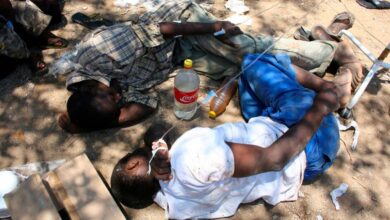Mr. Anderson Obeng Amoako, the Adaklu District Disease Control Officer of the Ghana Health Service, (GHS) has said the number of pregnant women diagnosed with malaria in the District has risen by almost a 100 per cent in 12 months.
He said comparing this year’s statistics of 413 pregnant women to that of last year’s 217 pregnant women it was evident that pregnant women were very much at risk.
Mr Amoako said 2,582 children under five years were diagnosed with malaria as against, the previous year’s 2,763; while 10,647 persons above five years were diagnosed with the disease as against 10,536 for the previous year.
Mr. Amoako was speaking at a Global Fund-supported malaria sensitisation workshop organised by GOSANET Foundation, a health NGO, for its volunteers and health workers in the Adaklu District at Adaklu Tsriefe.
He said pregnant women were four times likely to be infected and twice likely to die from the disease due to the change in their immune system, which reduced the “B lymphocytes” to accommodate the foetus.
Mr. Amoako said malaria infection was more severe in pregnancy and exerted a heavier toll on the lives and health of pregnant women and their babies.
He, therefore, appealed to them to take the full course of the prescribed anti- malarial drugs and always sleep under treated mosquito nets.
Mr. Charles Azagba, the Adaklu District Director of Health Services, appealed to the participants to prevail on all pregnant women in their communities to access health care delivery.
Mr Fred Sitsofe Acquah, the Project Officer of GOSANET Foundation, said emphasis should now be laid on behavioural change so as to curtail the disease.
He told the volunteers to work hand in hand with health workers in the communities and also monitor and encourage pregnant women to take their drugs.
Mr. Samuel Atidzah, Executive Director, GOSANET Foundation, said 50 Community- Based Agents (volunteers) from 34 communities in the district had been trained to assist in the education and the eradication of Malaria in the District by 2020.
During an open forum, the participants identified stalled drainage works in their communities, which they alleged bred mosquitoes, leading to the spread of the disease.
It is said that about 30 million women in Africa who become pregnant in malaria endemic areas are at risk with 400,000 of such women having severe maternal anaemia resulting in 10,000 maternal deaths every year.
Source: GNA



